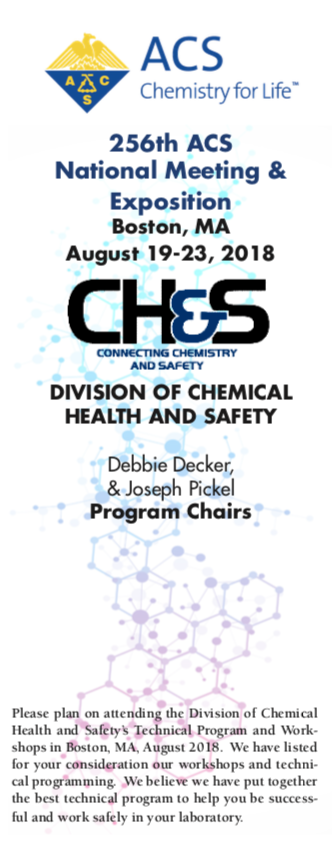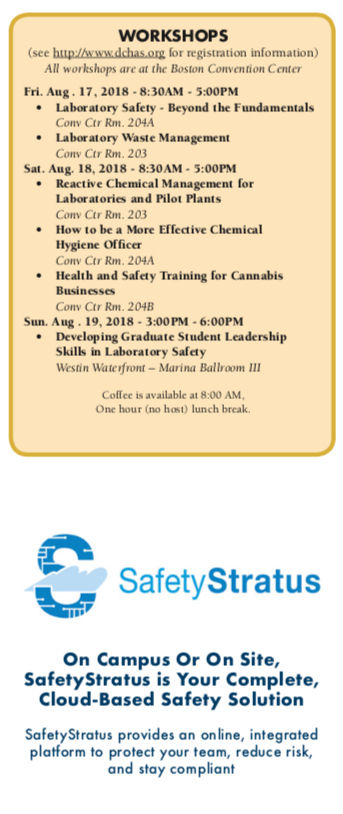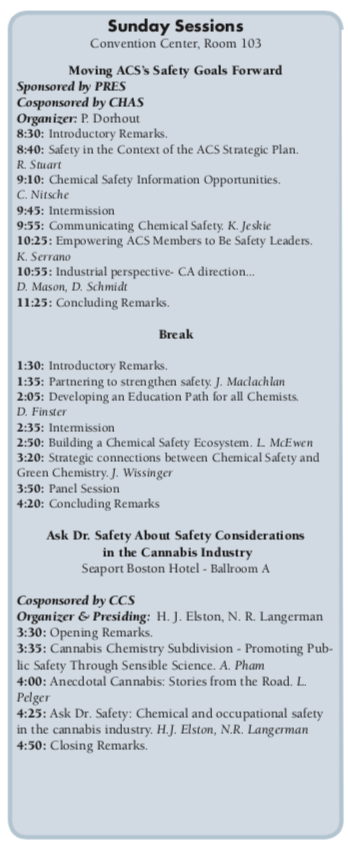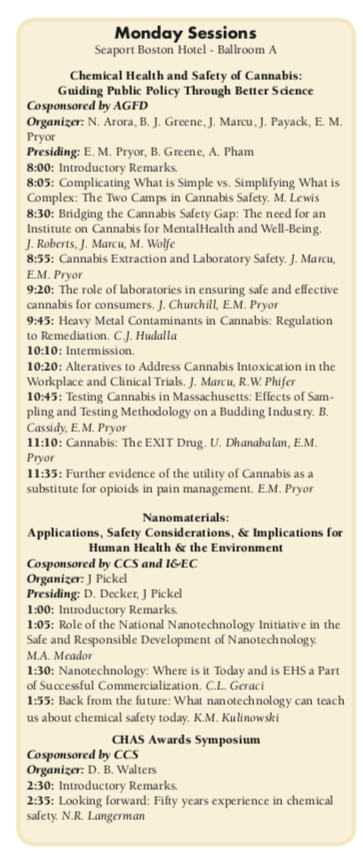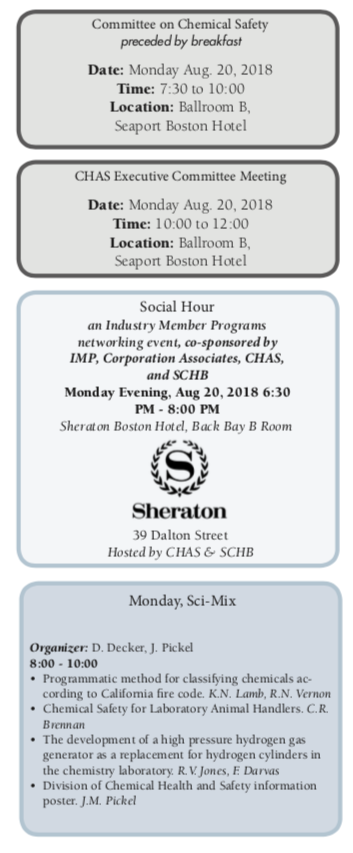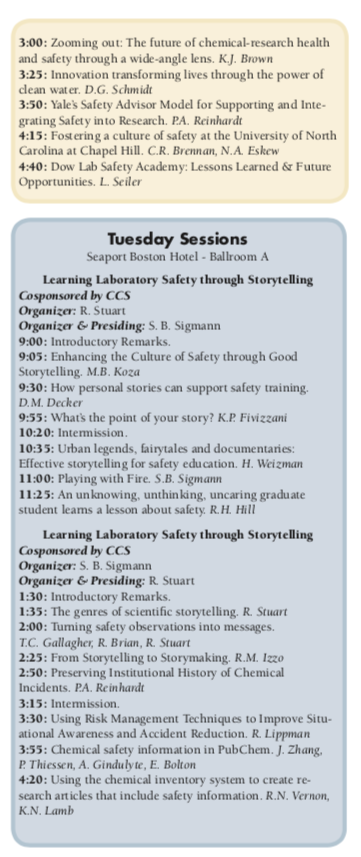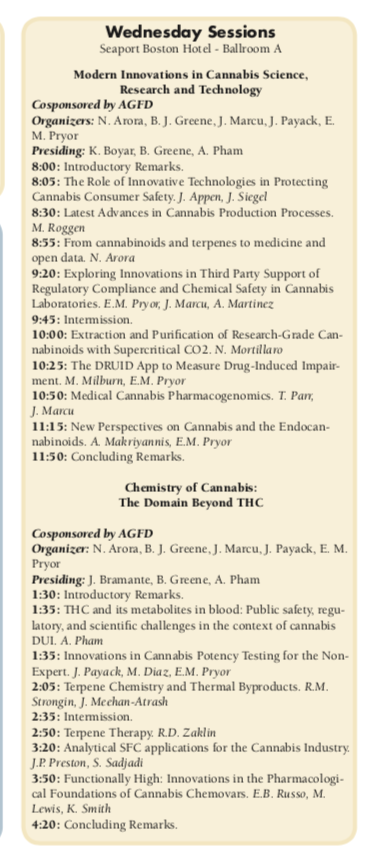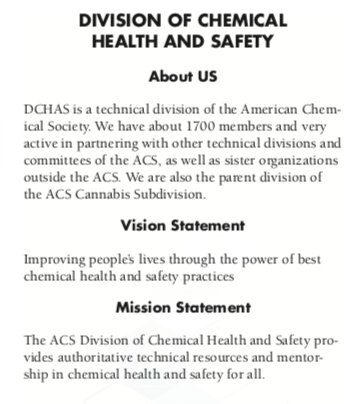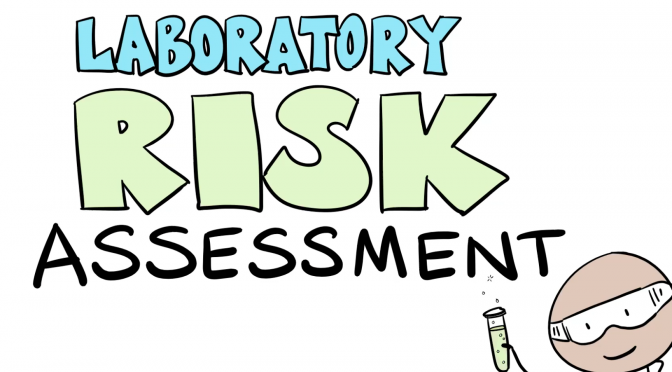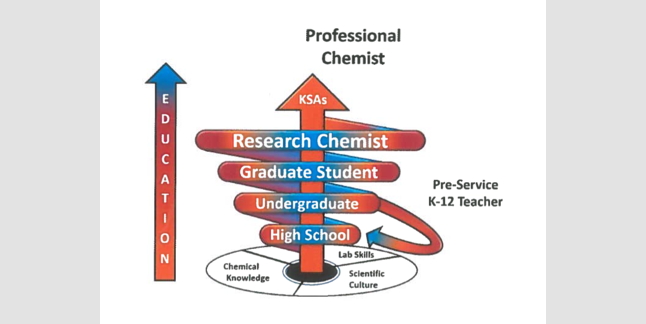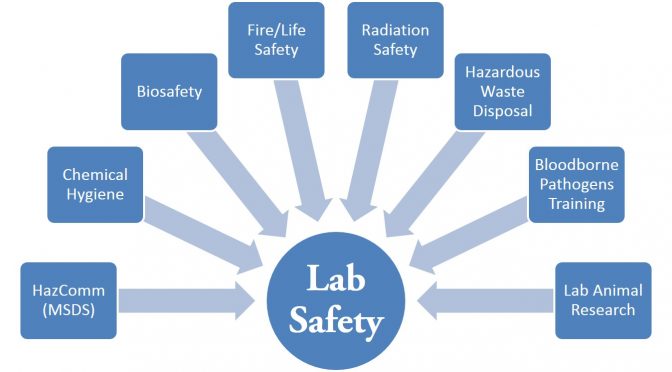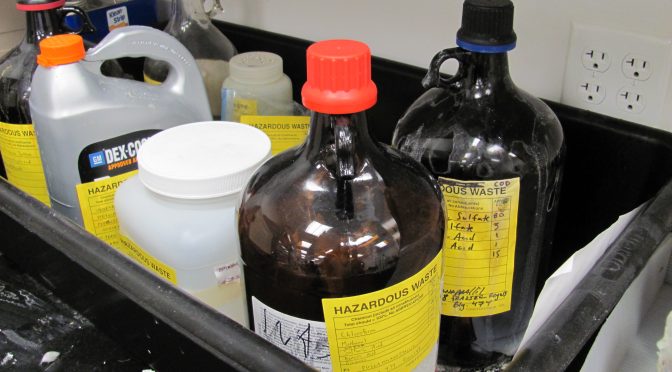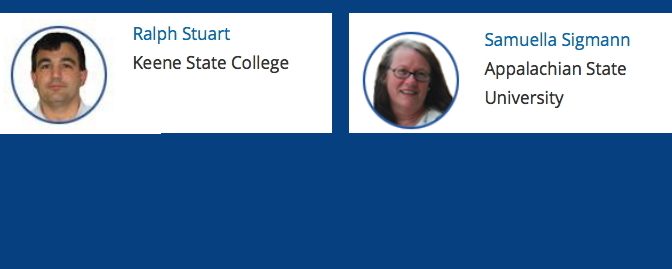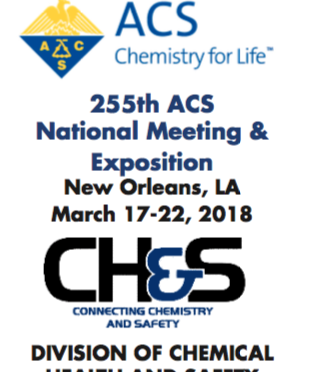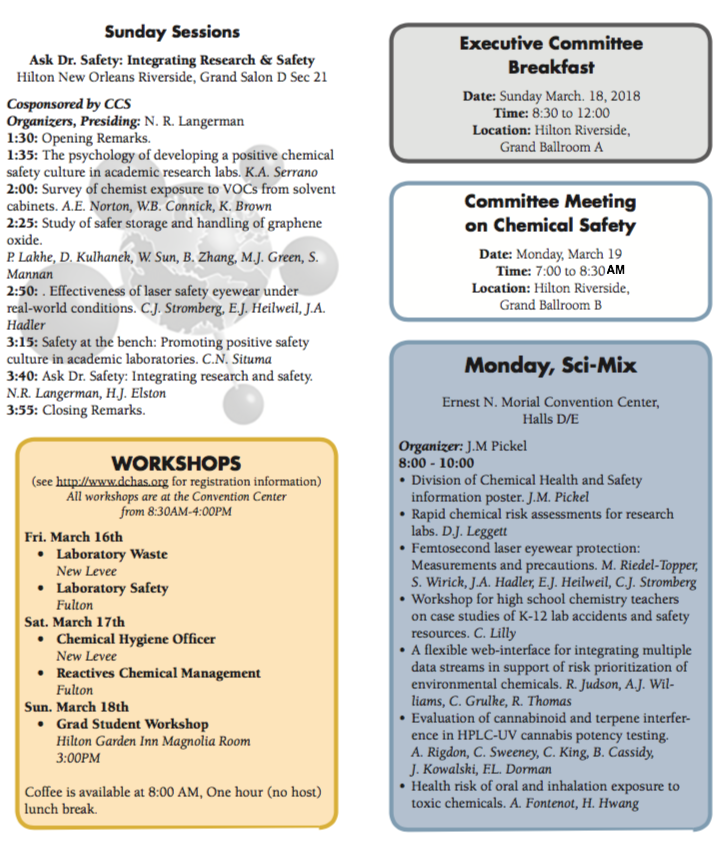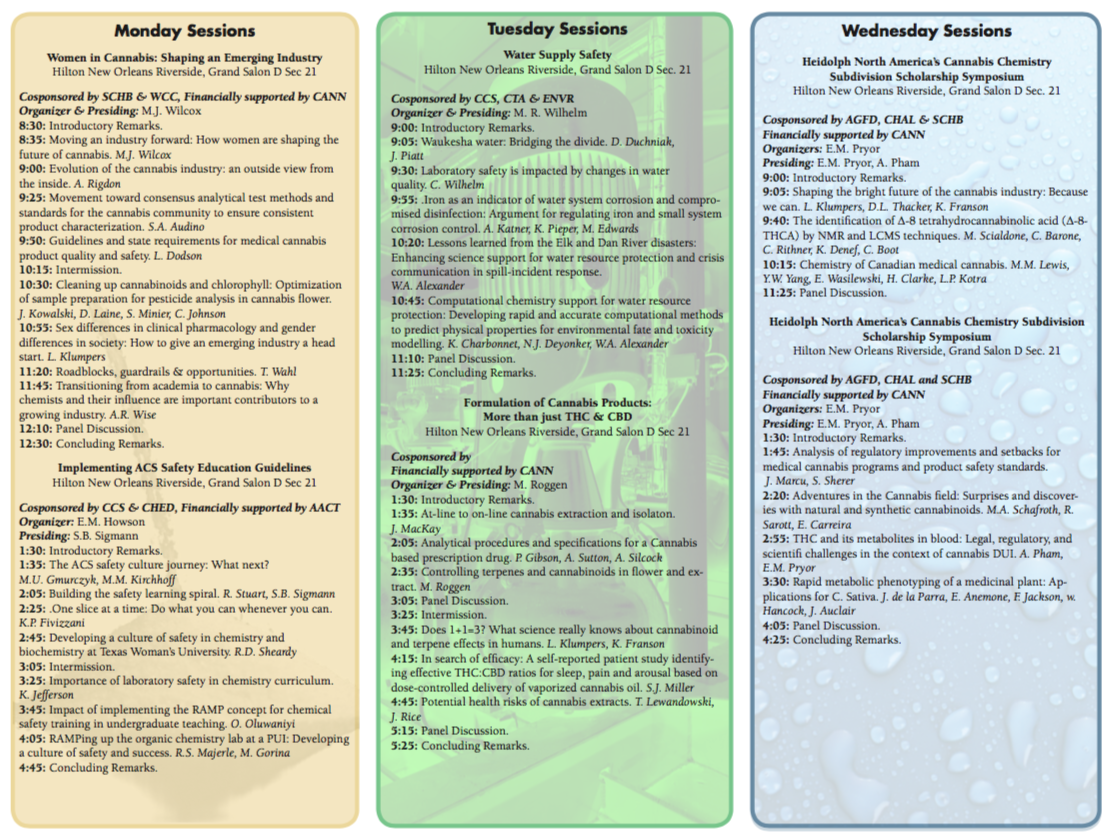Presenters: Melissa Wilcox and Julia Bramante
Saturday, August 18, 8:30 – 4 PM
Health and safety training related to cannabis has become an urgent national priority. Recent studies suggest less than fifty percent of cannabis operators provide any health and safety training for their staff, and across all United States industries the number of workers who can use cannabis legally is increasing. This course is intended for employers in states where cannabis use is legal, as well as workers and staff throughout the cannabis industry. The course will cover topics important for individuals who work at cannabis operations.
This comprehensive course presented by the American Chemical Society Chemical Health and Safety Division and the Cannabis Chemistry Subdivision is a review of methodologies, safety considerations and best practices related to working at cannabis operations whether it is a retail, manufacturing, cultivation, laboratory or a vertically integrated combination of those operations. Participants will learn how to comply with health and safety standards at each level of the supply chain. Policies and recommendations will be discussed for the following topics: workplace safety, laboratory safety, personal protective equipment training, hazardous materials (HAZMAT), and handling law enforcement interactions.
There is extensive opportunity for questions both during the workshop and with follow-up by phone and email. Each participant will receive workshop materials and resources.
EXTRACTION, ANALYSIS, AND LAB SAFETY:
- Cannabis Extraction and Analysis
- Hazard identification
- Flammables and Explosives
- Hazard Communication
- Safety Data Sheets (SDS)
- Laboratory Ergonomics
- Laboratory Safety
- Laboratory Emergency Preparedness
WORKPLACE SAFETY:
- General Workplace Safety
- Back Safety
- Confined Spaces
- Ergonomics (in Industrial and/or Office settings)
- Fall Prevention – Slips, Trips, and Falls
- Food Security Awareness
- Hand, Wrist, and Finger Safety
- Identifying Workplace Hazards
- Safety Audits
- Hazard Emergency Response Plan
- Incident Reporting/Investigation OSHA Recordkeeping (for Employees and/or Supervisors and Managers)
- PPE Training:
- General PPE Essentials
- Hand and Foot Protection
- Head, Eye, and Face Protection
- Hearing and Respiratory Protection
LAW ENFORCEMENT INTERACTIONS:
- State and Federal Cannabis Laws
- Knowing Your Rights
- Preparing and Responding to Raids and Arrests
HAZARDOUS MATERIALS (HAZMAT):
- Globally Harmonized System for the Classification and Labeling of Chemicals (GHS)
- Hazard Communications (for when working with hazardous chemicals)
- Hazmat: Awareness, labeling, loading/unloading, marking, packaging, reporting, etc.
- Hazmat Emergency Response Training
- Hazmat: Security Awareness and Safety
[sform]2[/sform]
Registration Notes:
One person may register for multiple workshops on a single Registration form. If you have more than one person to register using the same credit card or billing method or if you need help with the registration process, please contact Russ Phifer at 610-322-0657 or rphifer@wcenvironmental.com
You will receive a confirmation that your registration has been submitted immediately upon registering. You will be sent a confirmation of registration email as soon as your registration is reviewed. Please contact 610-322-0657 if you do not receive the confirmation within four working days.
Terms
Members of ACS who are not also members of CHAS do not qualify for the CHAS member discount.
Conditions and Cancellation/Refund Policy
Upon verified registration, information will be sent to each participant containing specific location information of the workshop. Companies may substitute registrants without prior notice or penalty. Full refund available for cancellations up to three (3) weeks prior to workshop date. 50% refund up to one (1) week prior to workshop. Cancellations made less than seven (7) days prior to workshop start date will be charged, but an 80% credit may be applied toward a future program. No-shows receive no credit and will be billed. In the event that the Division of Chemical Health and Safety is forced to cancel a workshop due to lack of registration or other causes, CHAS will notify participants at least ten (10) days in advance by email. We will notify you by email as soon as we know that the workshops will be held, i.e. we have sufficient registrants to present the workshop. CHAS suggests fully refundable air fares be used due to the potential of workshop cancellation. CHAS will not be responsible for penalties caused by these types of fares in the event of workshop cancellation.

